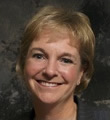Come join us in sunny Florida.
 "Effecting community change requires collaborative work based on a deep understanding of how groups come together and maintain their capacity to work together. Fran Butterfoss is arguably the most experienced and informed individual in the country on community engagement and ongoing participation."
"Effecting community change requires collaborative work based on a deep understanding of how groups come together and maintain their capacity to work together. Fran Butterfoss is arguably the most experienced and informed individual in the country on community engagement and ongoing participation."
- Noreen M. Clark, Ph.D. Director, Center for Managing Chronic Disease, University of Michigan
The 23rd annual conference showcased an impressive list of Intensive Workshop speakers for Sunday:
Available handouts are under presentation titles.
Intensive Workshop #1: Putting the Pieces Together to Sustain Youth Voice - Brianne Masselli, Leslie-Ann Pagan, Raphelle Richardson
Download handouts: pdf (1.28MB)
This workshop will demonstrate how applying a logic model and partnering with evaluators can improve and ease implementation of a youth guided principle to sustain youth voice and support systems of care communities. The theory of change planning process will be explained and illustrated by a local level youth coordinator who partnered with youth, professionals and evaluators to map out what youth voice looked like in their community and how youth engagement supported system transformation.
 Brianne Masselli is the Youth Coordinator for Thrive, Maine’s Trauma Informed System of Care. Ms. Masselli has utilized her personal experience in the system to advocate, empower and create system change. Ms. Masselli is currently a member of Youth MOVE National and a member of YADA (Youth Advisors Driving Action), The National Evaluation of the Comprehensive Community Mental Health Services for Children and Their Families Program. Brianne has received her Bachelor of Science degree in Criminal Justice and Psychology and is pursuing a degree in Public Health and Policy with a focus in Children’s Mental Health.
Brianne Masselli is the Youth Coordinator for Thrive, Maine’s Trauma Informed System of Care. Ms. Masselli has utilized her personal experience in the system to advocate, empower and create system change. Ms. Masselli is currently a member of Youth MOVE National and a member of YADA (Youth Advisors Driving Action), The National Evaluation of the Comprehensive Community Mental Health Services for Children and Their Families Program. Brianne has received her Bachelor of Science degree in Criminal Justice and Psychology and is pursuing a degree in Public Health and Policy with a focus in Children’s Mental Health.
Intensive Workshop #2: Using the System of Care Practice Review (SOCPR) as an Evaluation and Fidelity Tool - Keren Vergon, PhD
Download handouts: pdf (966kb)
The SOCPR is an evaluation tool that uses case studies to examine a program, agency, or system’s adherence to system of care values and principles at the level of practice, and how well the overall service delivery system meets the needs of children, youth, and their families. This workshop will review the SOCPR and discuss evaluation and fidelity issues related to sampling and case selection, data collection, data analysis and reporting writing, and providing feedback.
 Keren Vergon, PhD is Research Assistant Professor in the Department of Child and Family Studies in the Louis de la Parte Florida Mental Health Institute of the College of Behavioral and Community Sciences at the University of South Florida. Her current research interests and activities include children’s mental health, trauma, and methodology and implementation science. She is currently a trainer for the System of Care Practice Review (SOCPR). Dr. Vergon has worked since 1995 in the areas of older adults’ and children’s mental health. She received her PhD in Aging Studies from the University of South Florida.
Keren Vergon, PhD is Research Assistant Professor in the Department of Child and Family Studies in the Louis de la Parte Florida Mental Health Institute of the College of Behavioral and Community Sciences at the University of South Florida. Her current research interests and activities include children’s mental health, trauma, and methodology and implementation science. She is currently a trainer for the System of Care Practice Review (SOCPR). Dr. Vergon has worked since 1995 in the areas of older adults’ and children’s mental health. She received her PhD in Aging Studies from the University of South Florida.
Intensive Workshop #3: Reducing Mental Health Disparities for Children and Youth Who are Lesbian, Gay, Bisexual, Transgendered, Questioning, Intersex, 2-Spirit (LGBTQI2-S) and Their Families: Research Findings and Best Practices - Kathy Lazear, MA / Sylvia Kay Fisher, PhD
Download handout: pdf (810kb)
This workshop will present a toolkit emphasizing research findings and best practices in addressing the needs of children and youth who are, or are perceived to be LGBTQI2-S, their families and LGBT-headed families. The toolkit includes: assets-based approaches and models of resilience; individualized service and support plans; school-based programs; a trauma-informed curriculum; service provider training; and a statewide initiative designed for these children and youth. All participants will receive a CD with relevant resources.
 Kathy Lazear, MA is the Coordinator, Human Services with CFS and a principle investigator with the Research and Training Center for Children's Mental Health. Ms. Lazear has consulted with and provided technical assistance to numerous states, local communities and internationally on system of care reform. Much of Ms. Lazear's research and evaluation activities have focused on mixed methods design, including case study methodologies utilized in the evaluation of community systems of care for children's mental health. Projects include the Child and Family Experience of the Mental Health System study, the SSI Family Impact Study, and the MACRO Family Experience Study of the CMHS grant communities. In addition, Ms. Lazear was the Project Director for the Leadership Initiative and the Florida Youth Suicide report to the Legislature. Ms. Lazear also served as the Coordinator for the Institute's Cultural Competence Plan and Research Interest Group and Institute representative to the University of South Florida's Diversity 2000 Strategic Initiative. Ms. Lazear received her B.A. from Fairfield University, Connecticut, and her M.A. from the University of South Florida, Tampa.
Kathy Lazear, MA is the Coordinator, Human Services with CFS and a principle investigator with the Research and Training Center for Children's Mental Health. Ms. Lazear has consulted with and provided technical assistance to numerous states, local communities and internationally on system of care reform. Much of Ms. Lazear's research and evaluation activities have focused on mixed methods design, including case study methodologies utilized in the evaluation of community systems of care for children's mental health. Projects include the Child and Family Experience of the Mental Health System study, the SSI Family Impact Study, and the MACRO Family Experience Study of the CMHS grant communities. In addition, Ms. Lazear was the Project Director for the Leadership Initiative and the Florida Youth Suicide report to the Legislature. Ms. Lazear also served as the Coordinator for the Institute's Cultural Competence Plan and Research Interest Group and Institute representative to the University of South Florida's Diversity 2000 Strategic Initiative. Ms. Lazear received her B.A. from Fairfield University, Connecticut, and her M.A. from the University of South Florida, Tampa.
Sylvia Kay Fisher, PhD is the Director of Evaluation at the Substance Abuse and Mental Health Services Administration (SAMHSA), Child, Adolescent and Family Branch (CAFB). She is project officer for the national evaluation of the Comprehensive Community Mental Health Services Program for Children and Their Families Program. Her professional background includes research design and analysis experience, emphasizing measurement and evaluation methodology, statistical analysis, and theoretical foundations in several disciplines. Formerly, she was a research psychologist at the Bureau of Labor Statistics, Office of Survey Research Methods, specializing in cognitive methods to improve large-scale government surveys.
Sylvia has more than five years of clinical experience in counseling and psychological evaluation with diverse clinical populations, including abused and foster children, has taught graduate and undergraduate courses in measurement, evaluation, systems change, and psychological assessment at several higher education institutions, and has presented and published in numerous academic and professional venues. In addition to evaluation, she is conducting activities on behalf of the CAFB in the areas of suicide prevention, the Building Bridges Initiative, and addressing the needs of children and youth who are LGBTQI2-S.
Intensive Workshop #4: De-Identifying Data Sets Using SPSS and R Statistical Applications - Matthew Lambert
Download handouts: pdf (279kb) | pdf (301kb)
Researchers studying systems of care often investigate children’s educational and health records as part of their evaluation. However, these data must not include information that could identify any individual according to the Family Educational Rights and Privacy Act (FERPA; 34 CFR Part 99) and the Health Insurance Portability and Accountability Act of 1996 (HIPPA). This presentation will include a quick historical review of FERPA and the HIPAA Privacy Rule (2003; 45 CFR Parts 160 and 164). The researchers will also provide a complete demonstration of de-identifying (i.e. removing protected health information) mental health data sets using both SPSS GUI and syntax methods.
Matthew Lambert is currently a doctoral student at Texas Tech University studying Educational Psychology with a focus on research methodologies and statistics. He has been involved with systems of care research and program evaluation since the initiation of the Rural Children¹s Initiative of West Texas. His other scholarly interests include item response theory and confirmatory factor analysis approaches to the study of differential item functioning on standardized assessments. In addition, Matthew has gained much expertise in statistical software applications, facilitating workshops for the College of Education at Texas Tech University on the use of R statistical software packages, which are widely used for statistical software development and data analysis.
Intensive Workshop #5: Using the Building Bridges Toolkit: Data Driven Practices for Integrated Community and Residential Systems - Robert Lieberman, MA, LPC / Richard H. Dougherty, PhD, CEO, President
Handouts not available for this presentation
The Building Bridges Initiative (BBI) is a national effort to identify emerging best practices through partnerships among residential and community providers, families, and youth. This workshop will present a BBI toolkit for organizations seeking to align services with Building Bridges values. Among other tools, participants will learn about the BBI organizational self-assessment tool (SAT) and engage in an interactive simulation utilizing the SAT to identify areas for improvement in communities and residential organizations.
Robert E. Lieberman, MA, LPC is the Executive Director of Southern Oregon Adolescent Study and Treatment Center (SOASTC), a multi-service agency for children and youth with serious emotional and behavioral disorders and their families. He is a past-President of the American Association of Children’s Residential Treatment Centers (AACRC) and is currently its Public Policy Chair. Mr. Lieberman is co-chair of Oregon’s Children’s System Advisory Committee and served as a member of the Oregon Commission on Children and Families for ten years. He is a member of the Outcomes Roundtable for Children and Families and co-chairs its Evidence-Based Practices workgroup. He is a member of the Building Bridges Steering Committee and co-chair of its Outcomes sub-committee. Mr. Lieberman has been integrally involved in helping forge the regulatory environment for children’s intensive mental health services in Oregon as well as assisting in articulating a blueprint vision for redesign of the entire state mental health system. He has published journal articles and conducts training, workshops, and makes presentations at statewide and national conferences. Mr. Lieberman also operates his own practice as a professional counselor for youth and families.
Richard H. Dougherty, PhD, CEO, President formed DMA Health Strategies in 1987, which provides effective, data-driven strategies for health systems change and quality improvement. For 24 years Dr. Dougherty has consulted with federal, state and local health and human service organizations on strategic planning, change management, and quality improvement projects. He has developed a model for consumer directed care in Delaware county PA; led the 2008 legislative study of Montana’s Mental Health System and strategic planning for the MA Bureau of Substance Abuse Services; and facilitated the California Learning Collaborative and MA Readmission Collaborative. Recent publications include papers on options for the redesign of Washington’s Mental Health System and on restructuring options for the NY Office of Mental Health. Dr. Dougherty is past-Treasurer and Board member of the American College of Mental Health Administration. He is an active member of the national Outcomes Roundtable for Children and Families. He Co-Chairs the Building Bridges Outcomes Subcommittee for SAMHSA and serves as a member of the Children in Managed Care Advisory Board for the Center for Health Care Strategies. He is also the President of BasicNeeds US, a charity supporting community mental health services in developing countries.
